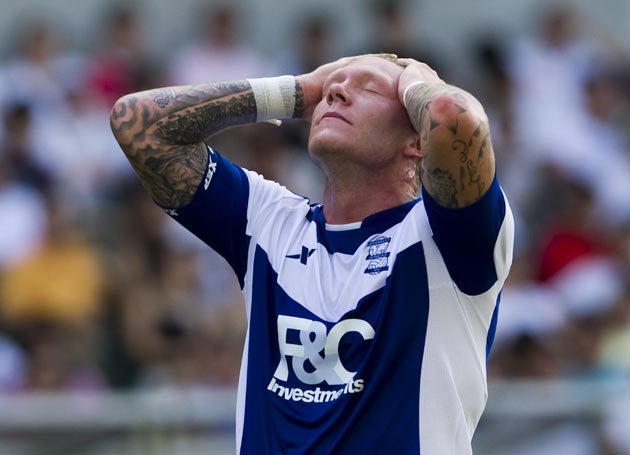O'Connor's two-month cocaine ban revealed

Your support helps us to tell the story
From reproductive rights to climate change to Big Tech, The Independent is on the ground when the story is developing. Whether it's investigating the financials of Elon Musk's pro-Trump PAC or producing our latest documentary, 'The A Word', which shines a light on the American women fighting for reproductive rights, we know how important it is to parse out the facts from the messaging.
At such a critical moment in US history, we need reporters on the ground. Your donation allows us to keep sending journalists to speak to both sides of the story.
The Independent is trusted by Americans across the entire political spectrum. And unlike many other quality news outlets, we choose not to lock Americans out of our reporting and analysis with paywalls. We believe quality journalism should be available to everyone, paid for by those who can afford it.
Your support makes all the difference.The former Birmingham City striker Garry O’Connor tested positive for cocaine while at the club, it emerged last night. Channel 4’s Dispatches programme revealed the positive test, which took place in 2009 and led to a two-month ban.
O’Connor had been signed by Birmingham from Lokomotiv Moscow in June 2007 for £2.7m, but he scored only nine league goals before his positive test for cocaine, on 19 October 2009. O’Connor was banned for two months by the Football Association, but his name was kept secret by the FA and the club, as O’Connor was seeking help for drink and drug problems. His manager, Alex McLeish, announced at the time that he needed a further operation on a longstanding hip injury.
After the ban, O’Connor (right) went on loan in August 2010 to Barnsley, where he made 26 appearances. Barnsley director Don Rowling told Dispatches they had “no knowledge” of the ban when they took him on loan, and that had they known they would not have signed him. O’Connor is now back at Hibernian, his first club. In May this year he was arrested on suspicion of possessing cocaine.
Dispatches claimed there were 21 positive tests for cocaine in English football between 2003 and 2010, but in almost all cases the names are still secret. “The FA do not report the name of the player [who tests positive for a social drug out of competition] as this offence is not a Wada Code offence and privacy allows the player to undergo any necessary rehabilitation,” an FA spokesman said last night.
Join our commenting forum
Join thought-provoking conversations, follow other Independent readers and see their replies
Comments